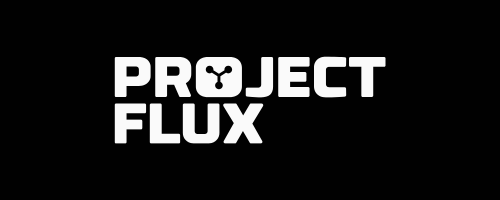
Proudly sponsored by ConstructAI, brought to you by Weston Analytics.
Hello Project AI enthusiasts,
What a week it's been in the AI world! From OpenAI's much-anticipated GPT-5 launch (and its rather bumpy rollout) to Google's ambitious push into educational AI with Gemini, the landscape is evolving at breakneck speed.
Meanwhile, the robotics sector is making bold moves with universal AI brains and ambient home assistants, whilst governance battles rage on both sides of the Atlantic.
In this edition: five game-changing stories that every project delivery professional needs to understand.
In This Edition
Flux check-in
OpenAI's long-awaited GPT-5 has finally arrived, but the rollout hasn't exactly gone to plan. Whilst the model boasts impressive capabilities—scoring 100% on AIME 2025 maths problems and claiming to be the first "unified" AI—users are reporting significant performance issues and inconsistent responses. The irony isn't lost on anyone: a model designed to make fewer errors is making quite a few of its own.

What Does This Mean for Me? If you're planning to integrate GPT-5 into your workflows, hold fire for now. The teething problems suggest waiting for stability improvements.
Key Themes: •
Three model variants available (GPT-5, Pro, Mini)
Performance issues plaguing early rollout
Mixed reactions on AGI claims
Government adoption strategy with $1 pricing
Down the Rabbit Hole: •
ElevenLabs has thrown down the gauntlet in AI music generation, launching a platform that promises studio-quality output with robust legal protections. Unlike competitors who've faced copyright controversies, ElevenLabs claims their system is cleared for commercial use—a potentially game-changing differentiator in an increasingly litigious landscape.

What Does This Mean for Me? Content creators and project teams needing original music now have a legally safer option for AI-generated soundtracks.
Key Themes: •
Commercial-use clearance as competitive advantage
Studio-quality audio generation
Legal safeguards addressing copyright concerns
Challenge to established AI music platforms
Down the Rabbit Hole: • TechCrunch Coverage
Together with Cogram
Power your construction bids with AI

Cogram’s AI-assisted RFP bidding tool writes tailored RFP proposals in minutes instead of weeks.
Automatically extract key details from the RFP — including scope, submission requirements, deadlines, and evaluation criteria — to easily make a go/no-go decision.
Cogram’s AI will then reference your firm’s knowledge base and past proposals to draft tailored proposals within minutes.
Use AI-assisted editing tools to review, cross-check data, and make improvements remarkably fast.
Google's DeepMind has unveiled Genie 3, a world model that's being hailed as a stepping stone toward AGI. But beyond the headlines, this technology could revolutionise how we approach project planning and delivery. The model's ability to simulate complex environments and predict outcomes has profound implications for project managers and delivery teams.

What Does This Mean for Me? Imagine being able to simulate entire project scenarios before committing resources—Genie 3 points toward that future.
Key Themes:
World model capabilities for environment simulation
AGI development milestone
Project planning and scenario testing applications
Complex outcome prediction systems
Down the Rabbit Hole:
xAI's Grok Imagine has entered the image generation arena with a controversial twist—it allows NSFW content creation, setting it apart from more restrictive competitors. This move raises important questions about AI content policies and the balance between creative freedom and responsible deployment.

What Does This Mean for Me? The content policy landscape is fragmenting, requiring careful consideration of which AI tools align with your organisation's values and compliance requirements.
Key Themes: •
NSFW content generation capabilities
Content policy differentiation strategy
Creative freedom versus responsibility debate
Competitive positioning in image generation
Down the Rabbit Hole: • TechCrunch Analysis
Anthropic has quietly released Claude Opus 4.1, and early testing suggests it's a significant leap forward in coding capabilities. Whilst OpenAI grabbed headlines with GPT-5's rocky launch, Anthropic has been methodically improving their model's ability to understand, write, and debug code—potentially reshaping how development teams operate.

What Does This Mean for Me? Development workflows could see dramatic efficiency gains, but teams need to prepare for the cultural shift toward AI-assisted coding.
Key Themes: •
Advanced coding and debugging capabilities
Quiet release strategy versus flashy launches
Development workflow transformation
AI-assisted programming evolution
Down the Rabbit Hole: • Anthropic Testing Details
The pulse check
Tips of the week
Create Claude Code Subagents for Projects
This week's practical tip comes straight from the trenches of AI-assisted development. Claude's new code subagent capabilities allow you to create specialised AI assistants for different aspects of your projects—think of them as digital team members with specific expertise.
You can configure one subagent for frontend development, another for backend APIs, and a third for testing and debugging. The key is in the initial setup: clearly define each subagent's role, provide relevant context about your project's architecture, and establish clear handoff protocols between agents. This approach not only improves code quality but also creates a more organised development workflow that scales beautifully as your project grows.
Learn more:Claude Code Subagents Documentation
Robotics
OpenMind Raises $20M to Build "Android for Robots" — Stanford-led startup creates OM1 platform and FABRIC protocol for robot interoperability.
Stanford Roboticist Creates Ambient Laundry-Folding Robot — Lume disguises robotic arms within elegant bedside lamps for discreet home automation.
Skild AI Unveils Universal Robot Brain — $300M-funded startup demonstrates general-purpose AI model for cross-platform robotics applications.
Governance & Security
The AI governance landscape is experiencing unprecedented turbulence this week, with regulatory frameworks and corporate accountability taking centre stage. Microsoft's introduction of the CLIO framework represents a significant breakthrough in steerable AI systems, enabling non-reasoning LLMs to develop their own thought patterns through real-time adaptation. This development comes as the industry grapples with the need for more explainable and controllable AI systems in high-stakes domains.
Meanwhile, geopolitical tensions are reshaping the semiconductor landscape, with President Trump demanding Intel CEO Lip-Bu Tan's resignation over alleged Chinese investment ties. Tan's reported $200 million investment in Chinese chip companies, some allegedly linked to military applications, highlights the complex web of global supply chains and national security concerns that now define the AI hardware sector.
In Europe the EU AI Act continues to establish new standards for AI innovation, aiming to create a level playing field whilst ensuring responsible development. These regulatory developments underscore the growing recognition that AI governance requires coordinated international efforts to balance innovation with security and ethical considerations.
Trending Tools and Model Updates
Browser Company Launches $20/Month AI Browser Subscription — The makers of Arc browser have introduced Dia Pro, offering unlimited AI chat and advanced features for power users seeking enhanced browsing experiences.
Google Tests Opal for Simplified Web App Creation — Google Labs' experimental no-code platform lets anyone build AI-powered mini-apps using natural language prompts, democratising app development for non-technical users.
Midjourney Launches HD Video Generation — The image generation giant now offers HD video mode for Pro and Mega subscribers, delivering 4x sharper AI-generated clips at 3.2x the cost.
Model Updates
Qwen Releases Advanced Image Generation Model — Alibaba's Qwen team has launched a 20B parameter image generation model with breakthrough text rendering capabilities and bilingual support for complex prompts.
Manus Now Builds Spreadsheets — The AI assistant platform has expanded its capabilities to include spreadsheet creation and data organisation, streamlining workflow automation for business users.
Open Weights and AI for All — OpenAI has released its first open-weight models since GPT-2, introducing gpt-oss-120b and gpt-oss-20b for developers seeking customisable AI solutions.
Other things we’re loving
Google Responds to AI Impact on Search Clicks — Tech giant denies claims that AI-powered search features significantly reduce website click-through rates.
Proactive AI Bug Detection Systems — New machine learning systems predict and catch software bugs during development rather than after deployment.
ChatGPT Develops Emotional Detection Capabilities — Enhanced AI systems now detect user emotional states for more empathetic and contextually appropriate responses.
Construction Firms Invest in AI — Most construction companies remain at entry level despite increasing AI investment across the industry.
Swedish PM Under Fire for Using ChatGPT — Prime Minister Ulf Kristersson faces criticism for consulting AI tools for political decision-making.
AI Revolutionising UK Construction Sites — Automation and artificial intelligence transform traditional construction workflows and project delivery methods.
AI Powers Energy-Optimised Buildings — Smart building systems use AI to optimise energy consumption and create autonomous operational environments.
Microsoft Tricks Users Into Copilot — Analysis of Microsoft's controversial tactics to increase Copilot adoption amongst reluctant users.
Community
The Spotlight Podcast
AI Won’t Fix Government

In this episode, Vijay Luthra discusses the intersection of AI and public services, highlighting the challenges of government reform, the impact of legacy systems, and the cultural hurdles that impede progress. He emphasises the potential of AI to improve public services while also addressing concerns about job displacement and the ethical implications of AI in healthcare.
Luthra advocates for a long-term perspective in implementing AI and the need for leadership to adapt to the complexities of modern governance.
Listen Now:
Apple
One more thing

Outrank Your Competitors on Amazon—Fast!
Stack Influence automates micro-influencer collaborations to significantly boost external traffic and organic rankings on Amazon. Trusted by top brands like Magic Spoon and Unilever, it's your secret to dominating page one.
That’s it for today!
Before you go we’d love to know what you thought of today's newsletter to help us improve The Project Flux experience for you.
See you soon,
James, Yoshi and Aaron—Project Flux

